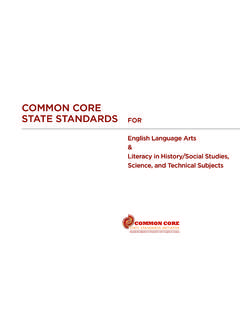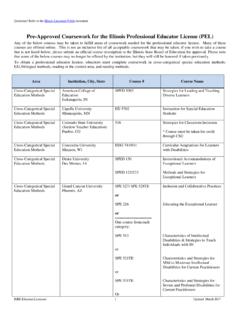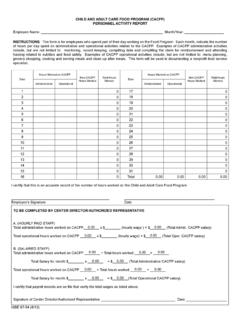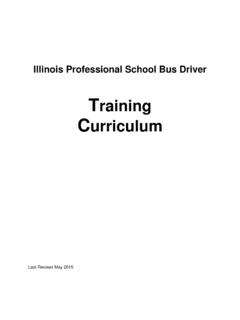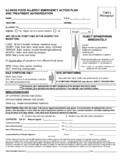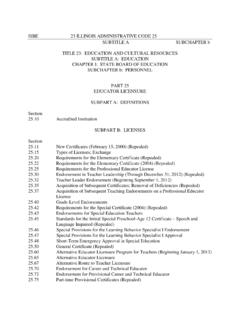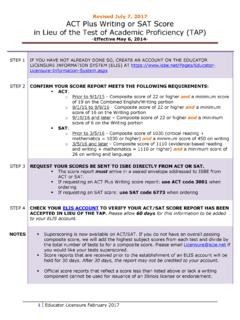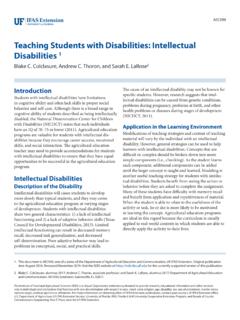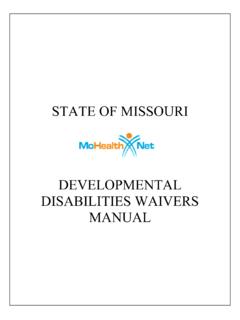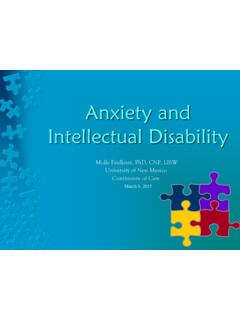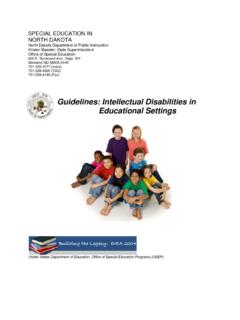Transcription of Intellectual Disabilities Fact Sheet
1 IntellectualDisabilitiesWWWWWhat Causes anhat Causes anhat Causes anhat Causes anhat Causes anIntellectual Disability? Intellectual Disability? Intellectual Disability? Intellectual Disability? Intellectual Disability?Doctors have found manycauses of Intellectual most common are: Genetic conditions. Sometimesan Intellectual disability iscaused by abnormal genesinherited from parents, errorswhen genes combine, or otherreasons. Examples of geneticconditions are Down syn-drome, fragile X syndrome,and phenylketonuria (PKU). Problems during pregnancy.
2 Anintellectual disability canresult when the baby does not NICHCY Disability Fact Sheet #8 January 2011 Matthew s StoryMatthew s StoryMatthew s StoryMatthew s StoryMatthew s StoryMatt is 15 years old. BecauseMatt has an Intellectual disabil-ity, he has been receiving specialeducation services since elemen-tary school. These services havehelped him tremendously,because they are designed to fithis special learning year he started highschool. He, his family, and theschool took a good hard look atwhat he wants to do whensecondary school is over.
3 Doeshe want more education? A job?Does he have the skills he needsto live on his own?Answering these questionshas helped Matt and the schoolplan for the future. He s alwaysbeen interested in the outdoors,in plants, and especially in knows all the tree names andcan recognize them by theirleaves and bark. So this year he slearning about jobs like forestry,landscaping, and groundsmaintenance. Next year he hopesto get a part-time job. He slearning to use public transporta-tion, so he ll be able to get toand from the job. is theNational Dissemination Centerfor Children with Connecticut Avenue , DC (Voice / TTY) (Voice / an Intellectual disabil-ity makes it harder for Matt tolearn new things.)
4 He needs thingsto be very concrete. But he sdetermined. He wants to workoutside, maybe in the park serviceor in a greenhouse, and he sgetting ready!WWWWWhat hat hat hat hat are anare anare anare anare anIntellectual DisabilityIntellectual DisabilityIntellectual DisabilityIntellectual DisabilityIntellectual Disability????? Intellectual disability is a termused when a person has certainlimitations in mental functioningand in skills such as communicat-ing, taking care of him or herself,and social skills. These limitationswill cause a child to learn anddevelop more slowly than atypical with intellectualdisabilities (sometimes calledcognitive Disabilities or mentalretardation) may take longer tolearn to speak, walk, and take careof their personal needs such asdressing or eating.
5 They are likelyto have trouble learning inschool. They will learn, but it willtake them longer. There may besome things they cannot Fact Sheet #8 (F S 8)develop inside the motherproperly. For example, theremay be a problem with theway the baby s cells divide asit grows. A woman whodrinks alcohol or gets aninfection like rubella duringpregnancy may also have ababy with an intellectualdisability. Problems at birth. If a baby hasproblems during labor andbirth, such as not gettingenough oxygen, he or she mayhave an Intellectual disability.
6 Health problems. Diseases likewhooping cough, the measles,or meningitis can causeintellectual Disabilities . Theycan also be caused by extrememalnutrition (not eatingright), not getting enoughmedical care, or by beingexposed to poisons like leador Intellectual disability isnot a disease. You can t catch anintellectual disability fromanyone. It s also not a type ofmental illness, like is no cure for intellectualdisabilities. However, mostchildren with an intellectualdisability can learn to do manythings. It just takes them moretime and effort than Common areHow Common areHow Common areHow Common areHow Common areIntellectual Disabilities ?
7 Intellectual Disabilities ? Intellectual Disabilities ? Intellectual Disabilities ? Intellectual Disabilities ? Intellectual disability is themost common Approximately people in the UnitedStates have an More than 545,000children (ages 6-21) have somelevel of Intellectual disability andreceive special education servicesin public school under thiscategory in IDEA, the nation sspecial education In fact, 1in every 10 children who needspecial education have someform of Intellectual are the Signs ofhat are the Signs ofhat are the Signs ofhat are the Signs ofhat are the Signs of Intellectual Disability?
8 Intellectual Disability? Intellectual Disability? Intellectual Disability? Intellectual Disability?There are many signs of anintellectual disability. For ex-ample, children with an intellec-tual disability may: sit up, crawl, or walk laterthan other children; learn to talk later, or havetrouble speaking, find it hard to rememberthings, not understand how to payfor things, have trouble understandingsocial rules, have trouble seeing theconsequences of their actions, have trouble solving prob-lems, and/or have trouble are IntellectualHow are IntellectualHow are IntellectualHow are IntellectualHow are IntellectualDisabilities Diagnosed?
9 Disabilities Diagnosed? Disabilities Diagnosed? Disabilities Diagnosed? Disabilities Diagnosed? Intellectual Disabilities arediagnosed by looking at twomain things. These are: the ability of a person s brainto learn, think, solve prob-lems, and make sense of theworld (called IQ or intellectualfunctioning); and whether the person has theskills he or she needs to liveindependently (called adaptivebehavior, or adaptive function-ing). Intellectual functioning, orIQ, is usually measured by a testcalled an IQ test. The averagescore is 100.
10 People scoringbelow 70 to 75 are thought tohave an Intellectual disability. Tomeasure adaptive behavior,professionals look at what achild can do in comparison toother children of his or her skills are important toadaptive behavior. These are: daily living skills, such asgetting dressed, going to thebathroom, and feeding one sself; communication skills, such asunderstanding what is saidand being able to answer; social skills with peers, familymembers, adults, and diagnose an intellectualdisability, professionals look atthe person s mental abilities (IQ)and his or her adaptive : 2 Intellectual Disabilities (FS8)Both of these are highlighted inthe definition of this disability inthe box on this page.
